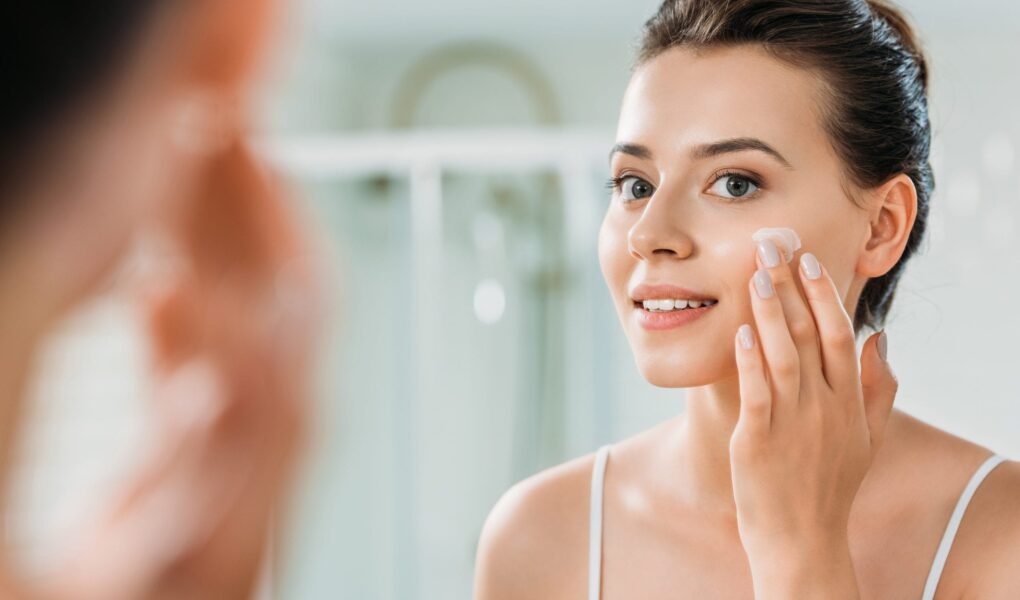In the relentless pursuit of maintaining a youthful appearance, the market is inundated with a plethora of anti-aging products, each promising remarkable results. However, discerning the effectiveness of these products amidst the saturation of claims can be challenging. This article aims to provide a comprehensive guide to the efficacy of anti-aging products, empowering individuals to make informed decisions about their skincare regimen.
Understanding the Aging Process:
Before delving into the efficacy of anti-aging products, it is crucial to comprehend the underlying mechanisms of skin aging. As individuals age, the skin undergoes several changes, including reduced collagen production, decreased elasticity, increased dryness, and the formation of fine lines and wrinkles. These age-related alterations are influenced by various factors, such as genetics, lifestyle choices, environmental exposure, and hormonal changes.
The Role of Anti-Aging Products:
Anti-aging products encompass a wide array of topical treatments, including creams, serums, lotions, and masks, formulated to address specific signs of aging. These products often contain active ingredients that claim to stimulate collagen production, enhance skin elasticity, improve moisture retention, and reduce the appearance of wrinkles.
Evaluating Product Claims:
While numerous anti-aging products assert transformative effects, it is essential to approach such claims with a critical eye. Look for products that have undergone rigorous clinical trials and scientific studies, as these provide objective evidence of their efficacy. Additionally, certifications from reputable dermatological associations can lend credibility to the product’s claims.
Key Ingredients in Anti-Aging Products:
Several ingredients have demonstrated potential efficacy in reducing the signs of aging. Retinoids, such as retinol and tretinoin, are widely recognized for their ability to stimulate collagen synthesis and improve skin texture. Peptides, which are short chains of amino acids, can enhance collagen production and support skin firmness. Antioxidants, such as vitamins C and E, protect the skin from free radical damage and promote a youthful complexion. Hyaluronic acid and glycerin are humectants that improve skin hydration, reducing the appearance of fine lines.
The Importance of Skincare Regimen and Lifestyle:
While anti-aging products can contribute to youthful skin, it is crucial to remember that they are just one component of an effective skincare regimen. Adopting a holistic approach that includes a healthy lifestyle, adequate hydration, a balanced diet, regular exercise, and proper sun protection is essential for optimal skin health and age management. Furthermore, a consistent skincare routine involving cleansing, moisturizing, and exfoliating can maximize the benefits of anti-aging products.
Consultation with a Dermatologist:
For personalized advice on anti-aging products and skincare routines, consulting a dermatologist is highly recommended. Dermatologists can assess individual skin conditions, recommend suitable products, and provide tailored guidance based on specific needs and concerns. They can also offer advanced treatments, such as chemical peels, microdermabrasion, or laser therapies, to complement the effects of topical anti-aging products.
Examining the Safety and Side Effects:
When considering the use of anti-aging products, it is important to evaluate their safety profile and potential side effects. While many products are generally well-tolerated, individuals with sensitive skin may experience redness, irritation, or allergic reactions to certain ingredients. It is advisable to perform a patch test before applying a new product to the entire face and to discontinue use if any adverse reactions occur. Furthermore, it is crucial to follow the instructions provided by the manufacturer and avoid overuse, as excessive application of certain ingredients may lead to skin irritation or other complications.
Realistic Expectations:
While anti-aging products can offer significant improvements to the skin’s appearance, it is important to set realistic expectations. These products may help reduce the signs of aging, but they cannot completely reverse the natural aging process or eliminate all wrinkles and fine lines. It is essential to approach anti-aging products as part of a holistic skincare routine aimed at maintaining healthy skin and managing the visible effects of aging rather than expecting miracles.
Combination Therapies:
In some cases, combining different approaches and therapies can enhance the effectiveness of anti-aging products. Dermatologists may recommend additional treatments, such as injectables (e.g., Botox or dermal fillers) or cosmetic procedures (e.g., micro-needling or laser resurfacing), to address specific concerns. These interventions, when performed by qualified professionals, can complement the effects of topical products and provide more significant and longer-lasting results.
Adapting to Individual Needs:
It is important to recognize that everyone’s skin is unique, and what works for one person may not yield the same results for another. Factors such as skin type, age, lifestyle, and genetic predispositions can influence how the skin responds to anti-aging products. Therefore, it may be necessary to experiment with different products and formulations to find the ones that work best for your specific needs. Keeping a journal or seeking professional advice can help track the effects of various products and make informed decisions regarding their continued use.
Continual Advances in Anti-Aging Research:
The field of anti-aging research is constantly evolving, with new discoveries and innovations emerging regularly. Scientists are continuously exploring novel ingredients, technologies, and treatment modalities to combat the visible signs of aging effectively. Staying informed about the latest research and breakthroughs can provide valuable insights into emerging trends and advancements in the field of anti-aging skincare.
Conclusion:
While anti-aging products can play a role in maintaining youthful skin, it is essential to approach them with realistic expectations and a discerning mindset. By evaluating product claims, understanding key ingredients, adopting a holistic skincare regimen, consulting with dermatologists, and considering individual needs, individuals can make informed decisions and optimize their chances of achieving and maintaining a youthful complexion. Remember, the journey towards youthful skin involves a combination of external care, inner well-being, and staying abreast of the latest developments in the field of anti-aging research.




